
Marinella was 57 years old when a mosquito bite appeared on her shoulder. At first she didn’t pay attention to it, but as the weeks went by, she noticed that the “tingling” did not go away. Finally, it was decided to go to a dermatologist. There he was prescribed an ointment and told that it would pass.
“At the age of 57, it appeared as a pinch on the shoulder. At first I thought something had pinched me. But it did not pass. I went to a dermatologist. The dermatologist gave me an ointment and said it would go away, but it didn’t. I changed the ointment, and as soon as I used the second one, the swelling increased. And then the doctor decided to do a biopsy,” Marinela recalls today.
The result of the biopsy was like lightning: a plasmacytoid dendritic cell neoplasm is a very rare form of blood cancer. It is so rare that in Romania, before Marinela, only one patient had been diagnosed with this disease.
Previously, Marinela had no health problems, no symptoms or pain. “I had no problems, I felt good. I passed the tests a month ago, they came out normal. Except for a mosquito bite that wouldn’t go away.”
“I was very, very scared. I was the second known patient in the country with this disease, I didn’t know anything about it.”
“It was very difficult when I found out the diagnosis, I didn’t know anything about this disease. I was the second known patient in the country with such a disease. I was very, very afraid. It was also age – because in the hospital I met young patients and I thought that I was already old and I didn’t think I could handle it. But I managed,” she recalls today, 5 years after that moment.
The road was long and difficult. After the diagnosis, Marinela went to the Fundeni Institute, to the hematology department. She was a patient of doctor Alexandru Bardash, to whom she says today that she “thanks from the bottom of my heart”: “The doctor told me that this is a very rare disease, that this is the second case in the country, but he will do everything possible for her to recover. And he told me from the beginning that a hematopoietic stem cell transplant would be needed.”
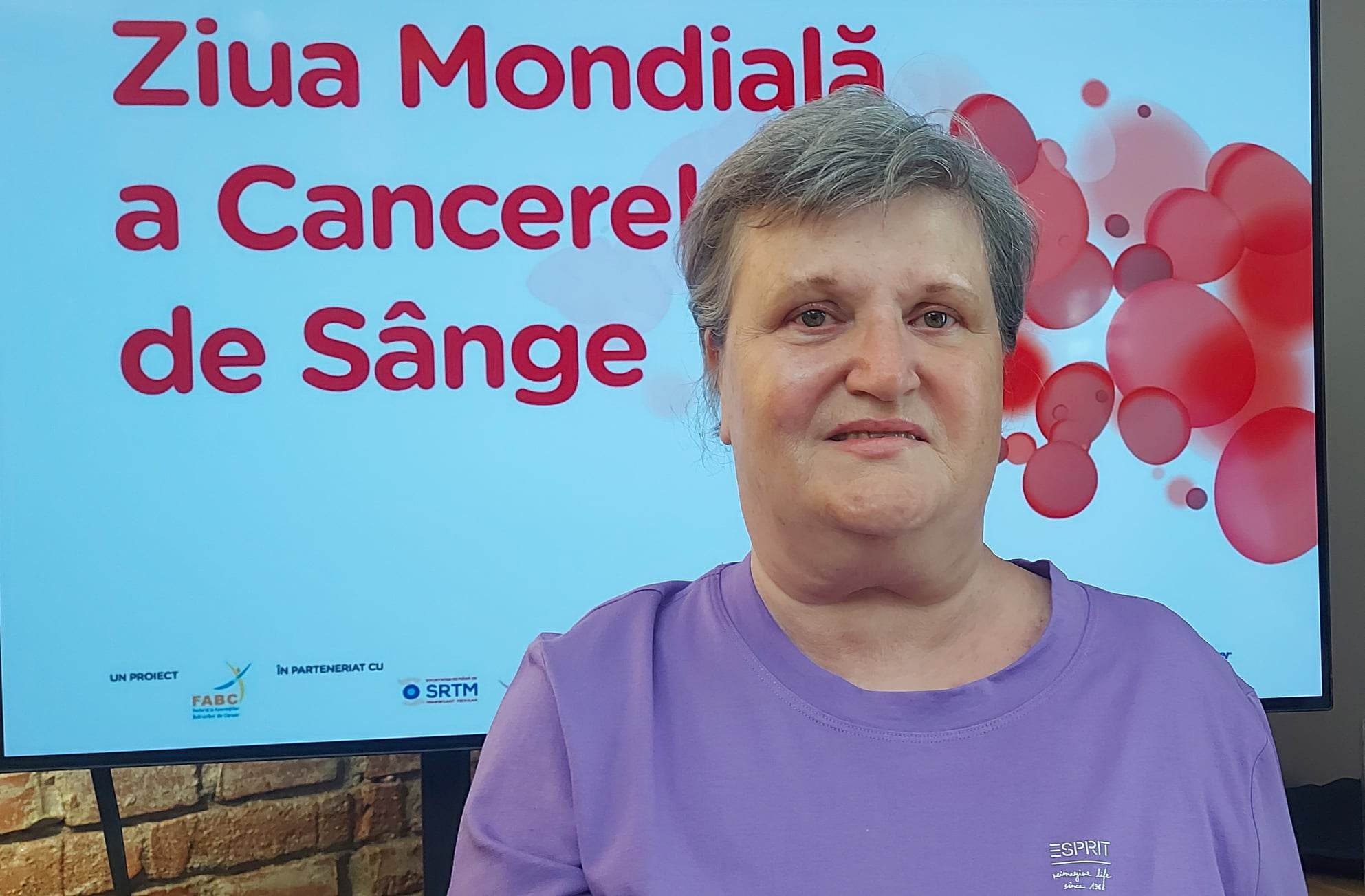
After learning that she would need a hematopoietic stem cell transplant, she began searching for a donor. Both brother and son offered to become donors, but, unfortunately, Marinela did not fit “neither with my brother nor with my boy.”
In this case, they turned to the International Register of Hematopoietic Stem Cell Donors and found a donor: “a beautiful woman from Germany who donated my cells.”
After completing the cytostatics courses, Marinela was called for transplantation at the Fundeni Institute in Bucharest, in the bone marrow transplantation department under the supervision of Professor Dr. Alina Tenase. She recalls that “I had a family, my husband, who was by my side day and night. And doctors. Extraordinary doctors! I haven’t been in the hospital since I gave birth. And I heard so many conversations—talks that he wasn’t going to do so well in the hospital. But Fundeni Hospital has extraordinary conditions, and the team of transplant specialists is exceptional! And I think that this is primarily the merit of Professor Alina Tenase!”
“Like I never even went through it”
Today, Marineli Mykhailescu turns 62. 5 years after she became the second patient in Romania to be diagnosed with plasmacytoid dendritic cells, Marinela is doing well. He regularly goes to the doctor for check-ups, about once every two months.
Today, he says, “it’s as if he didn’t even pass.”
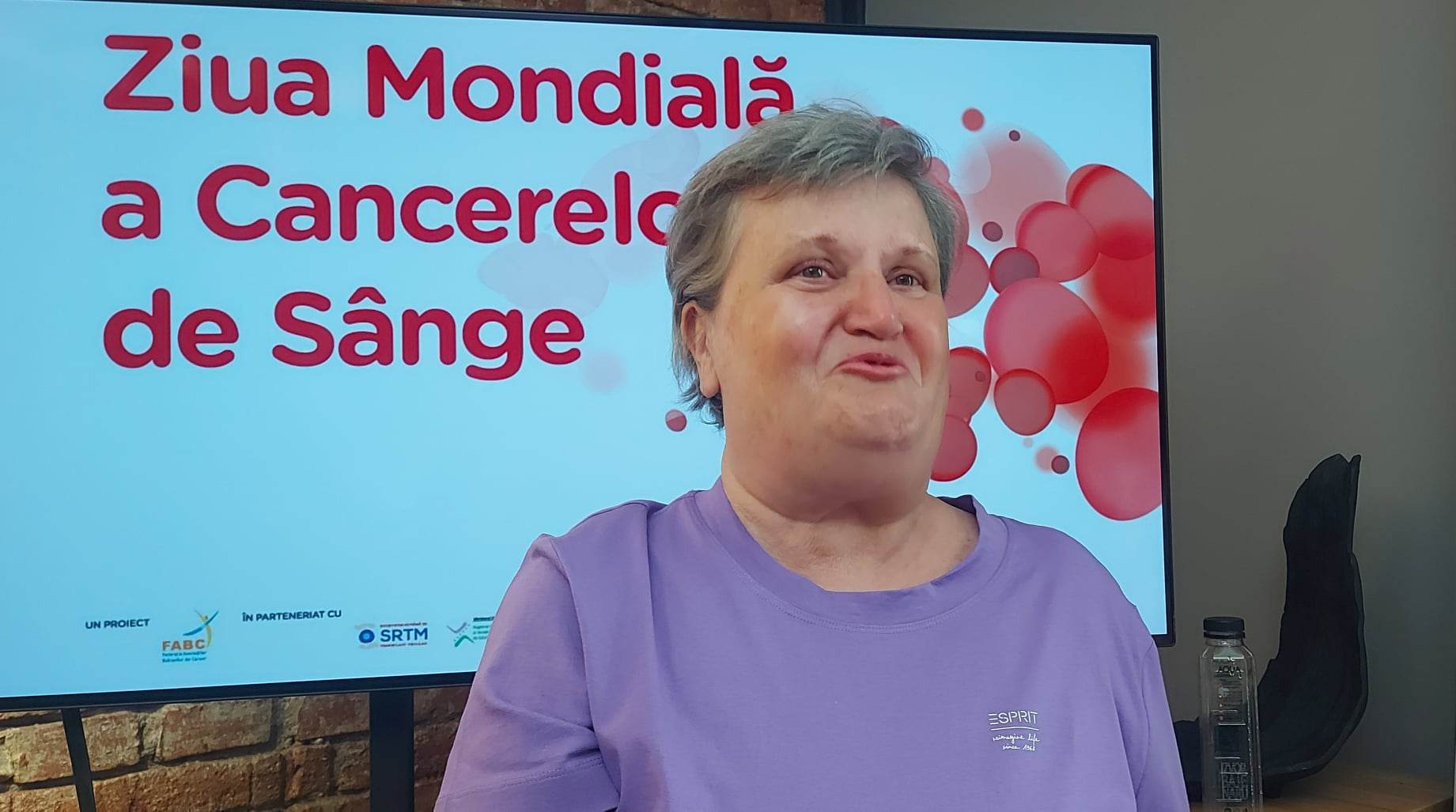
But when he looks back at the last years, he remembers that “the struggle was very big.”
What helped her the most was her husband, who was by her side both day and night: “My husband was by my side day and night. There are many treatments and there are times when you start giving up. I also did psychotherapy. But everything went well.”
Cancer of the blood, much more common than solid tumors. Marinela’s message to other patients: “It’s possible! I live thanks to doctors”
In Romania, as everywhere in the world, blood cancers are much more common than cancers with solid tumors, and the survival rate is also much higher.
At the end of the past 5 years, during which her life has changed, Marinela has a message for patients who are at the beginning of this journey: “You can call with great confidence, have regular checkups and have complete confidence in the health of our system. I live and thank from the bottom of my heart the medical team of the Fundeni Institute, the Department of Hematology, especially Professor Alina Tenase and the Department of Bone Marrow Transplantation! I met special people here. They are like a part of my family, I have been happily going to the hospital for 5 years. Even if there are still some problems, I know they will be solved. With all confidence, I tell everyone to go and believe that this disease can be cured.”
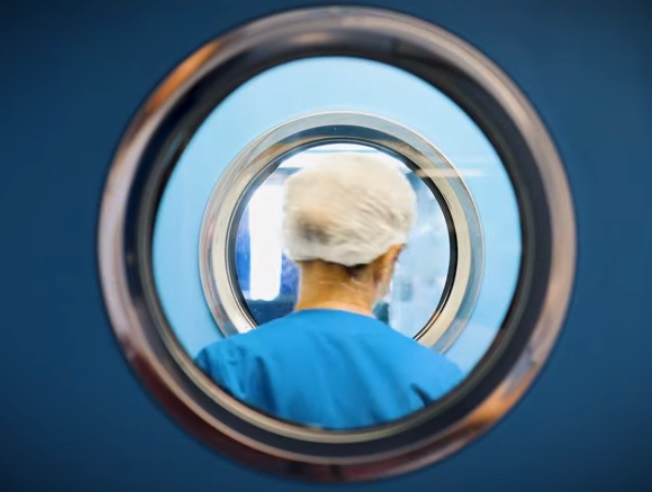
Department of Bone Marrow Transplantation, Fundeni Clinical Institute
In addition, Marinela urges Romanians who can do so, not to hesitate to become donors of hematopoietic stem cells, since the transplantation of these cells can save the lives of patients suffering from blood cancer: “For people who can become donors of stem cells: it is not difficult to donate and save lives! When I received the cells from a donor in Germany, I sent her a thank you letter and she responded. She responded so well and was so happy that she was able to help me and that I am alive because of your donated cells! And we kept in touch, we write to each other. I sent my children to donate blood when blood was needed at the hospital. I asked my boy to do everything, to communicate with him at work and in his environment, and many of his acquaintances became blood donors.”
Transplantation of hematopoietic stem cells, one of the most effective methods of treatment of blood cancer
Every year, 3 out of 100,000 Romanians are diagnosed with blood cancer, while in the world, every 35 seconds, one person is diagnosed with this disease. In recent years, treatment options have expanded significantly, and one of the treatment methods that has proven to be the most effective is hematopoietic stem cell transplantation.
The main advantage of hematopoietic stem cell transplantation is that it offers a chance for recovery or long-term remission for patients who suffer from blood cancer and have indications for this procedure.
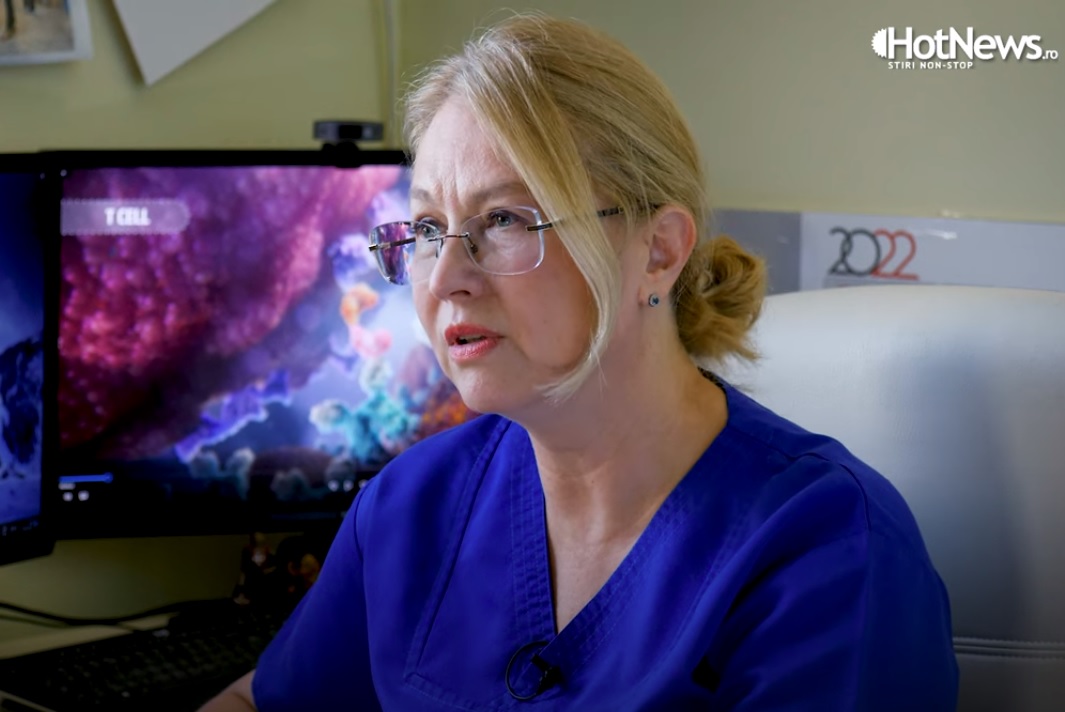
Professor Dr. Alina Tenase, Head of the Bone Marrow Transplantation Department at the Fundeni Clinical Institute in Bucharest
“Hematologic malignancies benefit from one of the most advanced areas of research, with new personalized targeted therapies emerging in recent years that offer the chance of a cure even in cases resistant to standard treatment. All types of hematopoietic stem cell transplantation have become routine therapy in Romania, and we hope that cell therapy, recently introduced in our country, will develop in the near future,” says Professor Dr. Alina Tenase, President of the Romanian Bone Marrow Transplantation Society. and Head of the Bone Marrow Transplantation Unit at the Fundeni Clinical Institute in Bucharest.
“Patients suffering from blood cancer have more and more treatment options, which can be seen in increasingly pleasant results of therapy and quality of life,” says Cesar Irimia, president of the Federation of Cancer Patient Associations.
One of the most effective treatments for blood cancers at the moment is a hematopoietic stem cell transplant, a procedure used to replace diseased bone marrow with healthy bone marrow that can produce normal blood cells.
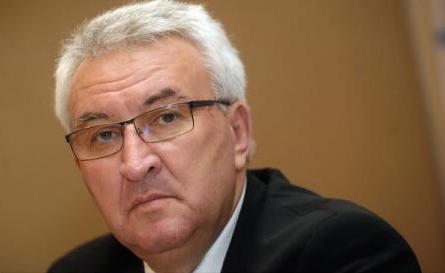
Cesar Irimia, president of the Federation of Associations of Cancer Patients
Transplantation is indicated for the treatment of several diseases such as acute leukemia, multiple myeloma, as well as severe aplastic anemia, sickle cell anemia, thalassemia major, immunodeficiency diseases, Fanconi anemia, inherited metabolic disorders, etc.
There are two types of hematopoietic stem cell transplantation: autotransplantation (transplantation of one’s own stem cells) and allotransplantation (transplantation from a donor). Stem cells are administered to the patient as a transfusion, regardless of the method by which they were donated.
With both types of transplant, a patient’s recovery can take months or years.
Read also:
-
One year after Dr. Alina Tenase brought “every oncologist’s dream” to the Fundeni Institute, a revolutionary therapy that teaches cells to fight and destroy tumors
Source: Hot News
Ashley Bailey is a talented author and journalist known for her writing on trending topics. Currently working at 247 news reel, she brings readers fresh perspectives on current issues. With her well-researched and thought-provoking articles, she captures the zeitgeist and stays ahead of the latest trends. Ashley’s writing is a must-read for anyone interested in staying up-to-date with the latest developments.